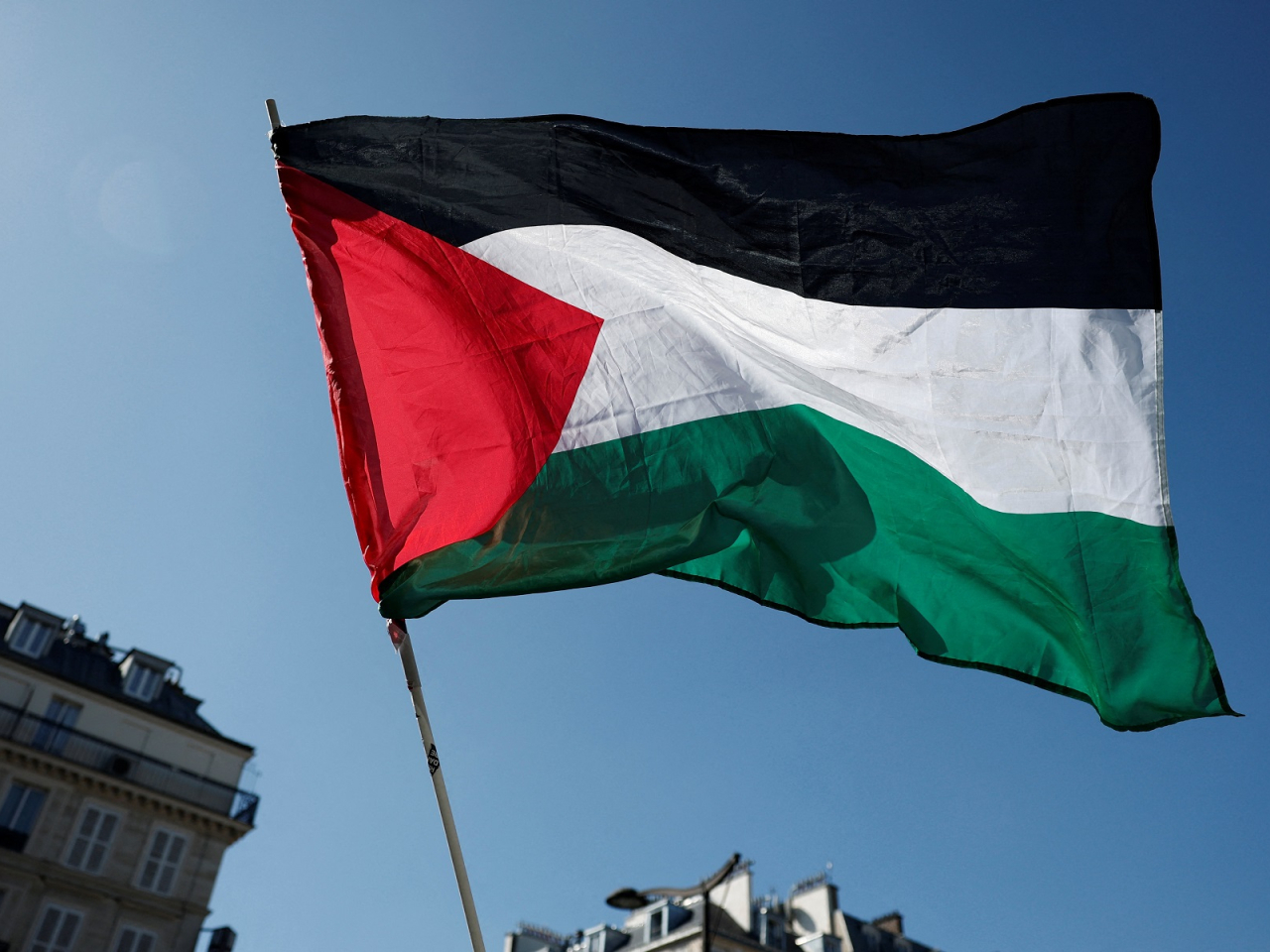Recognition of a Palestinian state by Britain, Canada, Australia and Portugal have drawn sharply contrasting reactions, with Palestinians in Gaza hailing it as a sign of hope while Israelis voiced anger and concern.
In Gaza, many saw the recognition as an affirmation of their existence after nearly two years of war between Hamas and Israel.
"We shouldn't just be numbers in the news," said Salwa Mansour, 35, displaced from Rafah to Al-Mawasi, which the Israeli military has declared a humanitarian zone.
"This recognition shows that the world is finally starting to hear our voice and that in itself is a moral victory.
"Despite all the pain, death and massacres we're living through, we cling to anything that brings even the smallest bit of hope," she added.
Britain and Canada became the first members of the Group of Seven advanced economies to take the step to recognise a Palestinian state in a bid to pressure Israel to end the war in Gaza.
RTHK's UK correspondent, Gavin Grey, said the announcement by the G7 member states is a significant one.
"For a long time the UK has prevaricated over its stance... So there's a real domino effect now of countries that have long sat on the fence about this issue finally declaring their hand," he told Hong Kong Today.
"However... it has no boundaries, no capital, no army. So this is a largely symbolic factor. And let's not forget the really big country at play here that is still refusing to recognise the state of Palestine is America."
In an effort to seize Gaza City, the territory's largest urban centre, the Israeli military has recently intensified its air assaults and launched a major ground offensive.
So far more than 550,000 people have fled the city and moved southward, the military said on Sunday.
On Sunday, at least 32 people were killed in Gaza City in Israeli strikes, according to the territory's civil defence agency, a rescue force operating under Hamas authority.
Mohammed Abu Khousa, a resident of Deir el-Balah, said he hoped that other countries would also follow suit in recognising a Palestinian state.
"When a country like Britain and Canada recognise us, it chips away at Israel's legitimacy and gives our cause a new spark of hope," he said.
"This could push more countries to recognise us, and hopefully bring an end to the war."
But not all Palestinians were positive about the decision, with some expressing scepticism over its ultimate outcome.
Recognition alone "is not enough, because there are countries that have previously recognised Palestine. They recognised years ago, but it did not lead to any results," said Mohammed Azzam, a resident of Ramallah in the occupied West Bank.
"On the contrary, every day the settlers' attacks increase, the killing increases, the arrests increase, the raids and thefts increase, and the checkpoints fill the entire West Bank.
"They have cut off the West Bank, its cities and villages. Even if the European countries recognised (Palestine), in reality this does not help us at all," he said.
Israeli Prime Minister Benjamin Netanyahu has remained defiant, saying recognition of a Palestinian state was equivalent to rewarding terrorism.
Grey said Netanyahu's tough stance was supported by many in his government.
"We're getting news almost daily that some of the settlers are reported to be getting violent with some of the Palestinians who have lived there for decades," he said.
"Indeed, there is talk of some of Benjamin Netanyahu's colleagues in cabinet saying that they would effectively like to end forever the idea of some kind of a Palestinian state, to split up the land that might be considered suitable for a Palestine state by putting settlers in different clusters in different places.
"So I think the idea that this is only about Benjamin Netanyahu is wrong."
Following the move by Britain, Canada and Australia, far-right Israeli minister Bezalel Smotrich and Itamar Ben Gvir both called for the annexation of the West Bank, which Israel has occupied since 1967, in contravention of international law.
Since the start of the Gaza war in October 2023, violence has soared in the West Bank, and Israel has expanded settlements throughout the Palestinian territory.
In Jerusalem, Israelis saw the move as dangerous and premature.
"I don't feel that a terrorism place like Gaza, where even their own people don't get what they need, should be a country," said Tamar Lomonosov, a resident of Beit Shemesh.
"They're just trying to find a solution to kill and fight with Israel."
Muriel Amar, a 62-year-old Franco-Israeli who was speaking ahead of France's own planned recognition, warned that the move would ignore key realities, including the fate of hostages still held in Gaza.
"As long as they haven't returned home, I don't see how we can consider turning the page," she said.
"It would also be a confirmation for terrorist groups like Hamas that they are in the right, and it would cause... bitterness on the Israeli side." (AFP)





